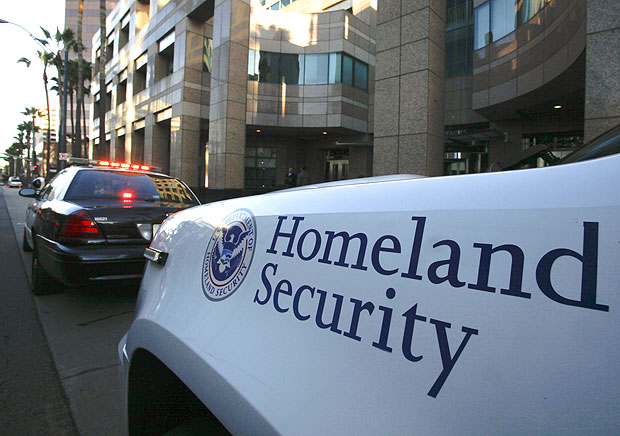A new Georgetown report released called called “American Dragnet: Data-Driven Deportation in the 21st Century.” shows Immigration and Customs Enforcement often oversteps the legal limits for spying on many Americans in pursuit of information it can use to fuel deportations. Immigration and Customs Enforcement has crafted a sophisticated surveillance dragnet designed to spy on most people living in the United States, without the need for warrants and many times circumventing state privacy laws, such as those in California. ICE has long been accused and suspected of overreaching in its surveillance tactics directed at immigrants and Americans alike, but this new report paints a picture of an agency that has gone well beyond its immigration enforcement mandate, instead evolving into something of a broader domestic surveillance agency, according to the report.
The report outlines the extent to which ICE has gone to form a large-scale surveillance system that has reached into the lives of ordinary people living in the U.S. Skirting local laws intending to protect individuals’ privacy, the agency has turned to third-party outfits — utility companies, private databases and even the department of motor vehicles in some states — to amass a trove of information from hundreds of thousands of Americans and immigrants to target people for deportation. ICE spent an estimated $2.8 billion between 2008 and 2021 on surveillance, data collection and data-sharing initiatives, according to the Georgetown report. The scale of ICE surveillance came as a shock to many.
Formed immediately after the Sept. 11 attacks, ICE was given sweeping powers to fight terrorism and enforce immigration law. Since then, the agency has collected data on hundreds of millions of Americans largely without much oversight or accountability, often crossing legal and ethical lines to amass people’s personal information to weave a vast surveillance system, according to the Georgetown report. For years, civil liberty and immigrant rights groups, such as the American Civil Liberties Union, have exposed and pushed back against ICE’s massive surveillance powers, launching lawsuits against the agency, with some success. Among other findings, the report documents that ICE has driver’s license data for 3 in 4 adults living in the U.S.; has scanned at least 1 in 3 of all adults’ driver’s licenses with face recognition technology; can track the movement of vehicles in cities that are home to nearly 3 in 4 adults; and can locate 3 in 4 adults through their utility records. The report made a list of recommendations on how to curtail ICE surveillance, including urging Congress to take action and impose oversight.

